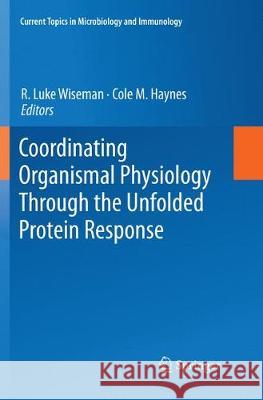Coordinating Organismal Physiology Through the Unfolded Protein Response » książka
topmenu
Coordinating Organismal Physiology Through the Unfolded Protein Response
ISBN-13: 9783030087234 / Angielski / Miękka / 2018 / 213 str.
Kategorie BISAC:
Wydawca:
Springer
Seria wydawnicza:
Język:
Angielski
ISBN-13:
9783030087234
Rok wydania:
2018
Dostępne języki:
Numer serii:
000195728
Ilość stron:
213
Oprawa:
Miękka











